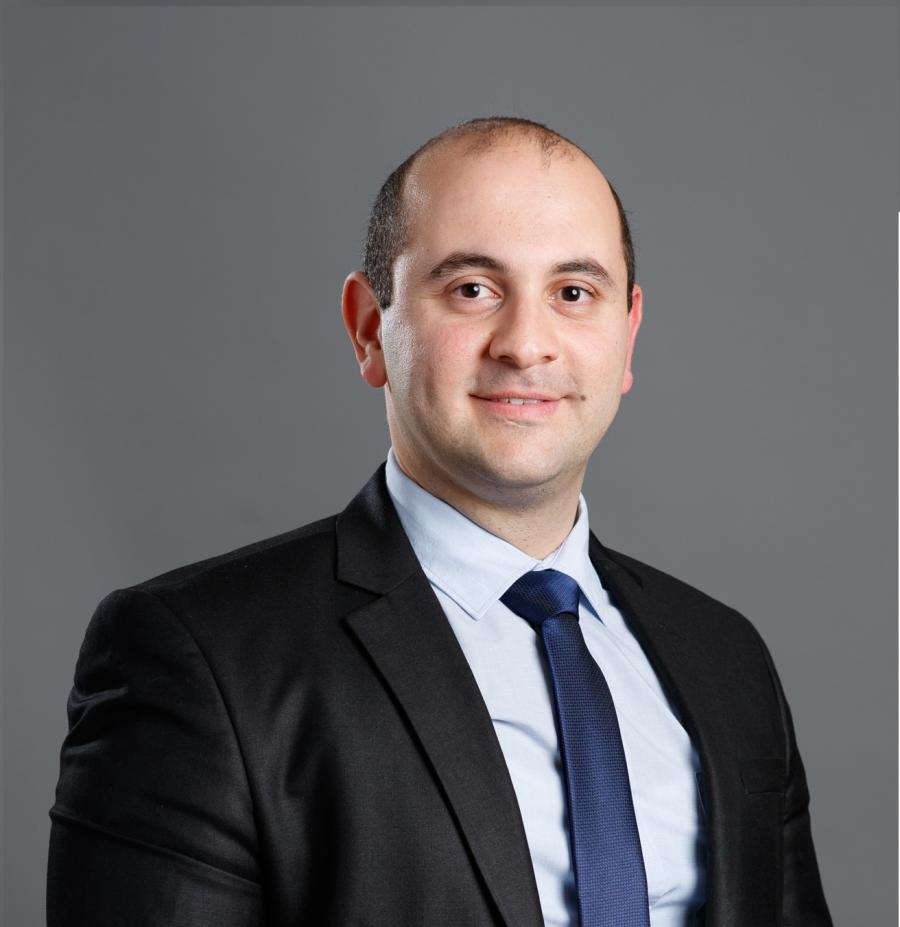- About
- Admissions
- Study at AUS
- Prospective Students
- Bachelor's Degrees
- Master's Degrees
- Doctoral Degrees
- Admission Publications
- International Students
- Contact Admissions
- Grants and Scholarships
- Sponsorship Liaison Services
- Testing Center
- New Undergraduate Student Guide
- Undergraduate Orientation
- New Graduate Student Guide
- Graduate Orientation
- File Completion
- Payment Guide
- Students with Disabilities
- Executive and Continuing Education
- Academics
- Life at AUS
- Research
- Publications
- Contact Us
- Apply Now
- .

Innovative renewable energy research by AUS alumnus wins RMIT Prize for Research Excellence
American University of Sharjah (AUS) alumnus Dr. Nameer Al Khafaf has been awarded the Royal Melbourne Institute of Technology (RMIT) Prize for Research Excellence – Higher Degree by Research Award 2022 for his research on integrating renewable energy sources into existing power grids.
A 2012 AUS graduate with a Bachelor of Science in Electrical Engineering, Dr. Al Khafaf is currently completing his research fellowship in renewable energy at RMIT University in Australia.
The RMIT Research Excellence and Impact Awards and Prizes recognize and celebrate the research achievements of early career researchers and higher degree by research candidates who have made significant contributions to research excellence and impact, and research training. Following a rigorous evaluation of Dr. Al Khafaf’s research contributions, academic achievements and the impact of his work on his field, Dr. Al Khafaf was selected for this prestigious award.
“In my research, I focused on how utilities responsible for delivering electricity to our homes and businesses (known as distribution network operators) can use data to make the power grid more secure and reliable, especially as we increasingly rely on renewable energy sources. I studied different ways to achieve this goal. One approach involved adjusting electricity usage patterns based on supply and demand conditions. Another approach involved efficiently distributing and regulating the electricity flow within the grid. I also explored the economic viability of using smaller energy sources, such as solar panels on rooftops or residential batteries that can generate or store electricity closer to where it's needed. By integrating these resources into the grid, we can reduce the strain on the overall system and make it more reliable and sustainable,” said Dr. Al Khafaf.
He added,” My research aimed to contribute to the development of sustainable and efficient energy solutions by providing practical insights and recommendations for distribution network operators. By leveraging data and adopting innovative approaches, we can create a more reliable and environmentally friendly power grid that meets our energy needs now and in the future.”
Dr. Al Khafaf said that winning the research excellence award was an honor and validation of his hard work.
“It helps enhance my professional credibility and provides a platform to showcase my research achievements. This recognition will also open doors to collaborations, networking opportunities and potential funding for future research projects. It will undoubtedly play a vital role in advancing my career in the renewable energy field,” he said.
Dr. Al Khafaf's research portfolio, which heavily influenced his selection, also included work done during his doctoral studies[RS1] at RMIT University, which involved developing a novel state-of-the-art technique to identify optimal modalities for energy consumption. His work was published in the top-tier journal IEEE Transactions on Industrial Informatics in early 2020.
Later that year, he was offered the opportunity to translate his research outcomes into practical real-world applications through a project funded by the Centre for New Energy Technologies (C4NET) and the Department of Environment Land Water and Planning (DELWP) in Australia to investigate the behavior of residential energy systems. He applied the technique he developed in his doctoral study to predict seasonal and daily consumption and power generation patterns of different users. The outcomes of this investigation were published in two top journal articles and informed the policy position of DELWP and the associated solar-homes program managed by Solar Victoria. It was also heavily covered by Australian mainstream media.
“For the past year and a half, I have been actively exploring opportunities to contribute to the renewable energy sector either through further research collaborations or by joining academic institutions. I am excited about the potential of transforming the knowledge and expertise I gained during my research into real-world applications and making a positive impact in the field,” he said.
Looking ahead, Dr. Al Khafaf’s future plans center on renewable energy and driving the transition towards sustainable energy sources for a more sustainable future.
“Whether through academic research, industry partnerships or policy involvement, I want to contribute to the development and implementation of innovative renewable energy technologies and practices. I also envision collaborating with experts from diverse disciplines to address complex energy challenges and promote sustainable solutions on a global scale,” he said.
Dr. Al Khafaf also credited AUS for the opportunities that allowed him to embark on his journey in the field of renewable energy.
“AUS played a significant role in shaping my academic and research interests and gave me the right foundation, which ultimately contributed to the research award I received. The university provided me with a comprehensive education in electrical engineering and fostered an environment of intellectual curiosity and academic rigor. This has helped me gain advanced standing in my graduate studies at RMIT University in Australia,” he said.
Through experiential and applied learning, the undergraduate and graduate programs in the Department of Electrical Engineering in the AUS College of Engineering provide students with knowledge spanning all areas of electrical engineering, including artificial intelligence (AI), robotics and autonomous systems, electronics, communications, renewable energy, biomedical applications, and much more. AUS is ranked among the top three (tied) in the UAE and top 300 universities globally for electrical and electronic engineering, according to QS World University Subject Rankings (2023).
For more information about the Department of Electrical Engineering and programs, visit www.aus.edu/cen/bsee.

